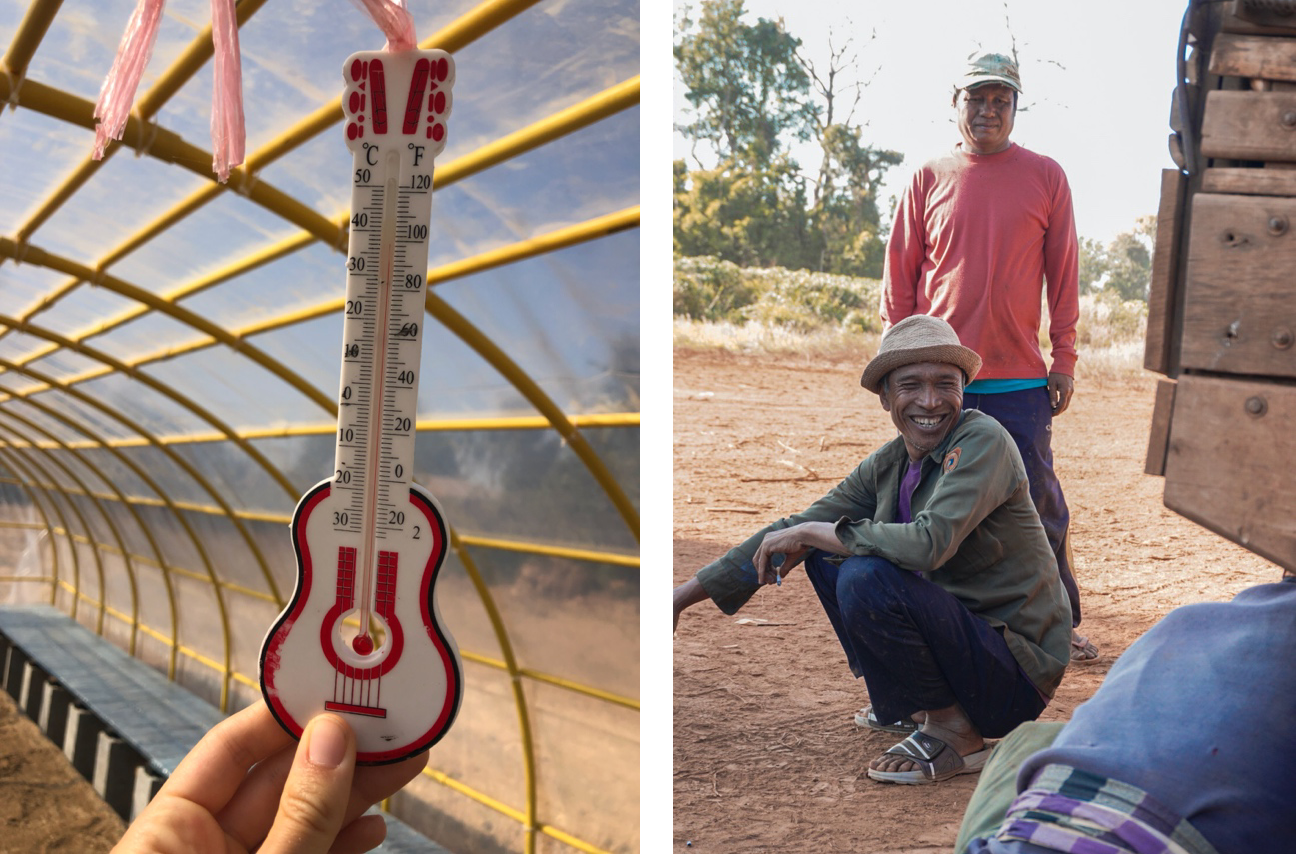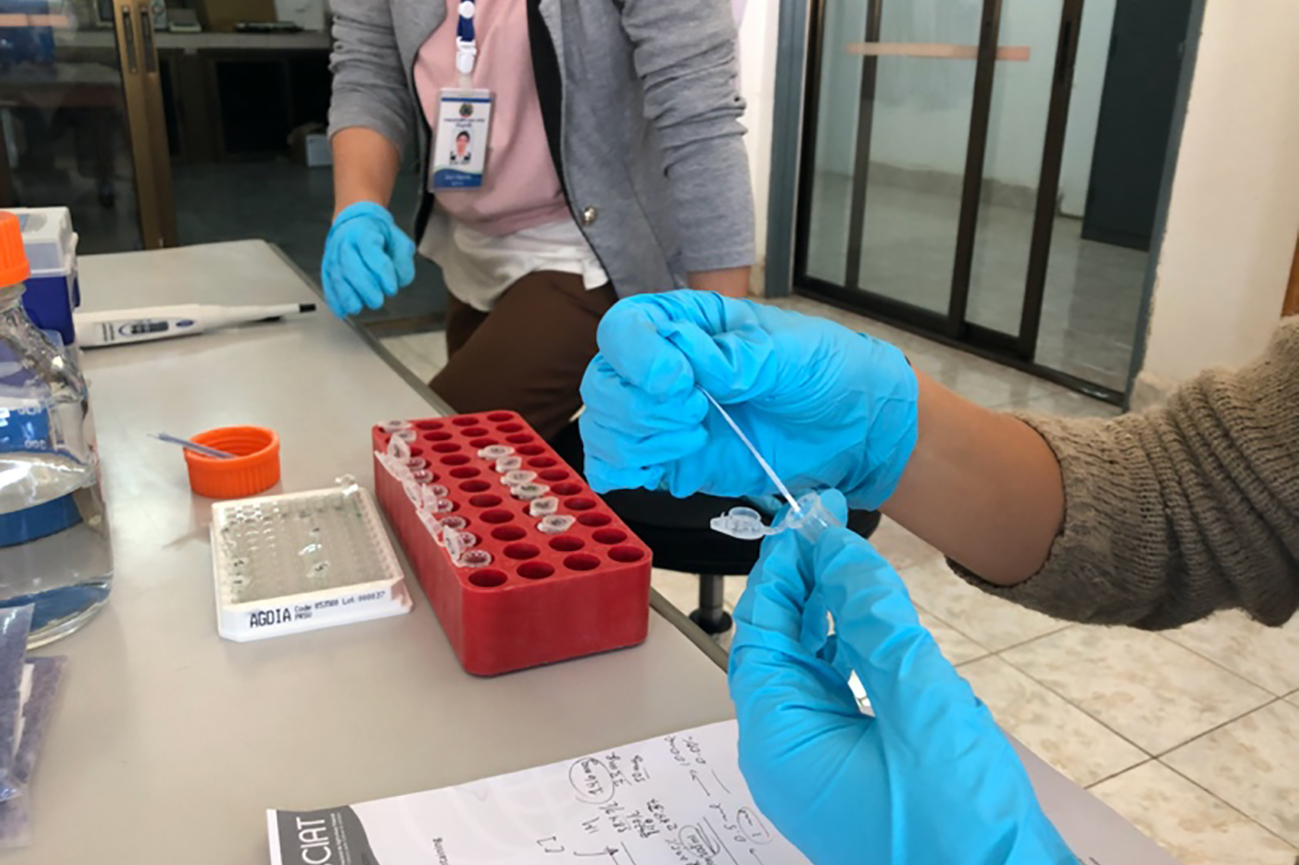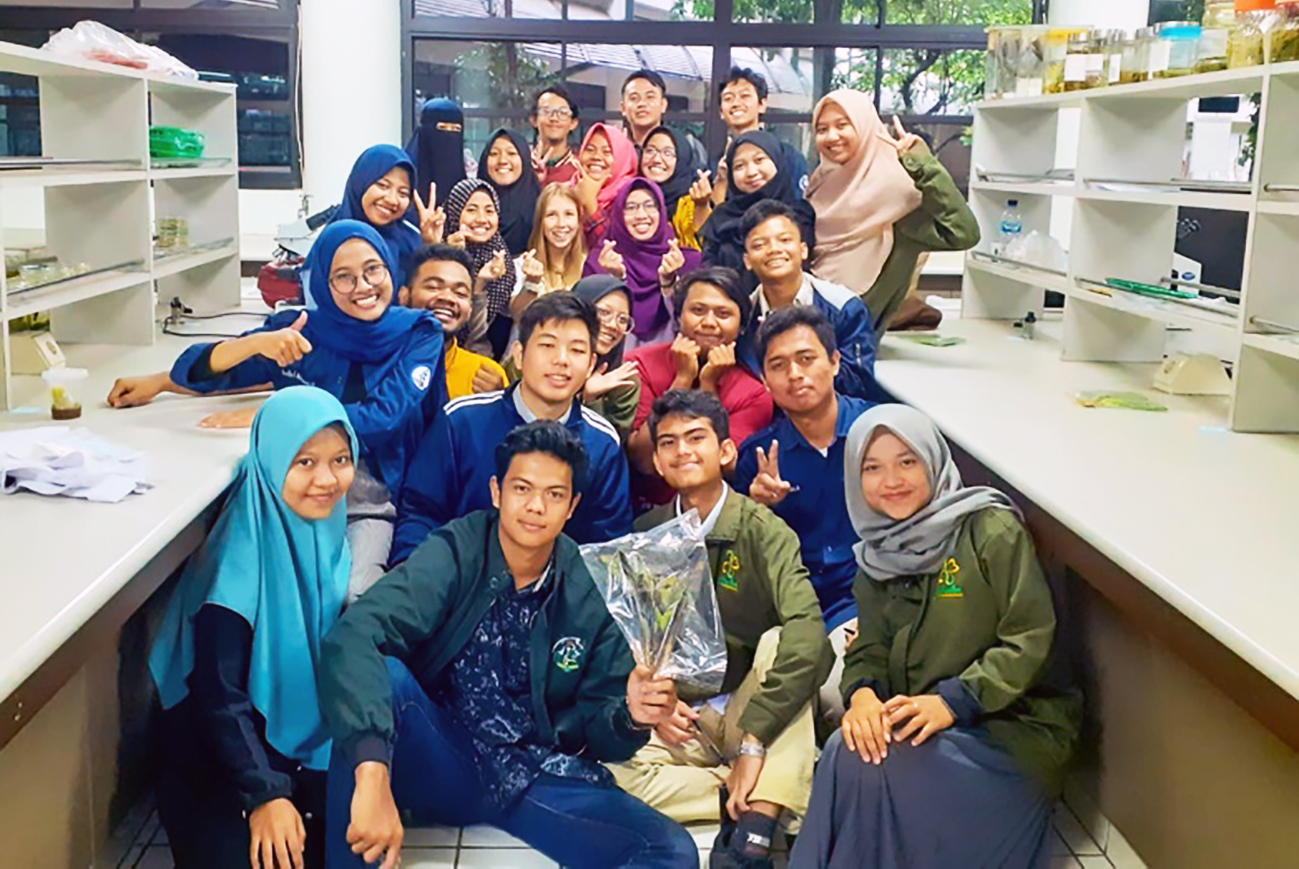Winner! 2nd Prize 2020 RAID Network Blog Competition
Four Hours in …
4 hours in of being hot and sticky, 4 hours in of miscommunication, 4 hours of longing to be perched up with a fresh cold coconut in hand and 4 hours in we FINALLY stumbled across success. A smile bridged across all 4 of ours faces. So what was our success?

Flat tyre mate? No worries or “bo pen yang”. My favourite phrase in Laos (right).
That’s right, a thermometer. A plastic, guitar-shaped thermometer to ‘precisely’ record the temperature in a controlled multiplication growing tunnel for cassava in Laos. If you had told me 3 years ago, early into my agricultural science career, that I would be overwhelmed with accomplishment by finding the most basic thermometer after 4 hours of searching, well… I may have just laughed. But as I have recently learnt:
Success is not measured equally across all situations, but rather, it is determined by our circumstances.
This is what agricultural research for development is for me… perspective. Finding success, gratitude and fulfillment in any situation and under any circumstances is something that I have taken on board after spending 5 months studying and researching in Laos and Indonesia. No matter the conditions, the locals who surrounded me were always finding a positive light. The glass was not just half full, it was overfilling. Every day, without doubt, I was greeted by a smile from those who around me whether it was local researchers, farmers or community members despite many living in conditions that most of us here in Australia could not fathom. For what the people and culture have given me in these countries, I hope to give back by improving the livelihoods of farmers and society in developing countries.
In Laos, I was fortunate enough to be assisted by the Crawford Fund to work on an ACIAR-CIAT project looking at disease in cassava. In saying this, my experiences and learnings extended far beyond these boundaries. Cassava is one of the world’s most important staple foods, sustaining approximately one fifth of the global population. Disease is one of the largest factors currently affecting its production, so for me, working and contributing to a project in this area seemed to have a tangible impact on food security across these countries.
Conducting in-country research and trials generally forms the basis of a trip overseas and while this component was rewarding and interesting, I would say the most valuable aspects of my time in Laos were passing on knowledge to local researchers and speaking to farmers about their decision-making processes.

One of my weeks in Laos involved showing a local colleague how to undertake a PCR test using dipstick technology for detection of cassava mosaic disease (CMD). Equipped with sufficient resources and time to adequately explain the procedure (somehow done through mostly hand gestures and facial expressions), we were able to successfully obtain results for a number of samples. But it was not the success of the procedure, it was the smile I was met with and knowledge that a young local researcher could now test for disease at a molecular level rather than purely off visual leaf symptoms, that brought me overwhelming fulfillment.
Expanding upon this, a few days spent in a major cassava growing region in Laos gave me the opportunity to communicate with farmers about their management and selling decisions. This enlightened me to a number of issues that farmers face every day which we may not consider when developing a production solution. For example, one afternoon while visiting a processing facility where farmers come to sell their cassava, a farmer had arrived with a full load of cassava. Unfortunately, the facility was at maximum capacity and could not accept his cassava. On top of this, the farmer had grown their cassava organically and was betting on selling to this facility for the price premium. Nonetheless, when the farmer was met with this situation, he simply accepted it and moved forwards selling to an alternative. What did I learn? To accept and make progress and not to dwell on what cannot be changed. I also realised we must recognise that issues are far more complex and intertwined than we may perceive.

In Indonesia, my role switched considerably compared to Laos. Rather than being a researcher, I was a student. I learnt from the leading Indonesian researchers, with local students in a local setting. This setup allowed me to explore the lives and mindsets of people who grew up in a completely different setting to my own and how this governs their decision making. I learnt to embrace, accept and most importantly, understand why things are done in a certain way. I believe this will assist in the future with working closely with local researchers and farmers to ultimately improve the livelihoods of rural and urban communities in developing countries.
All in all, my experience in agricultural research development has involved a great deal of character development and further passion to give for what I have received. From my short time in the sector, I can come away with this… life is all about lenses. Some may receive broken ones; some may receive the top line. But at the end of the day it is how we choose to look out of these lenses and what we do with these lenses. That is what Ag R4D is for me.


